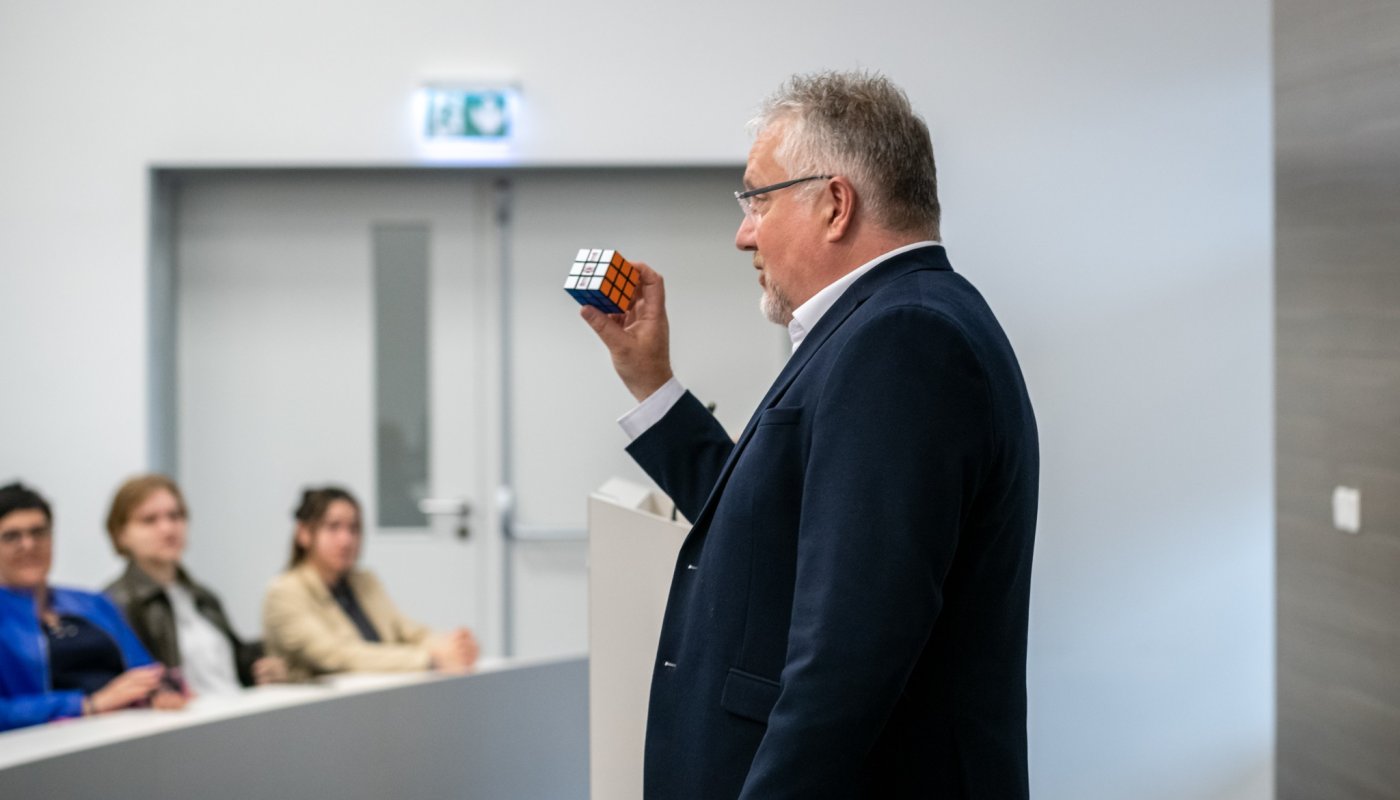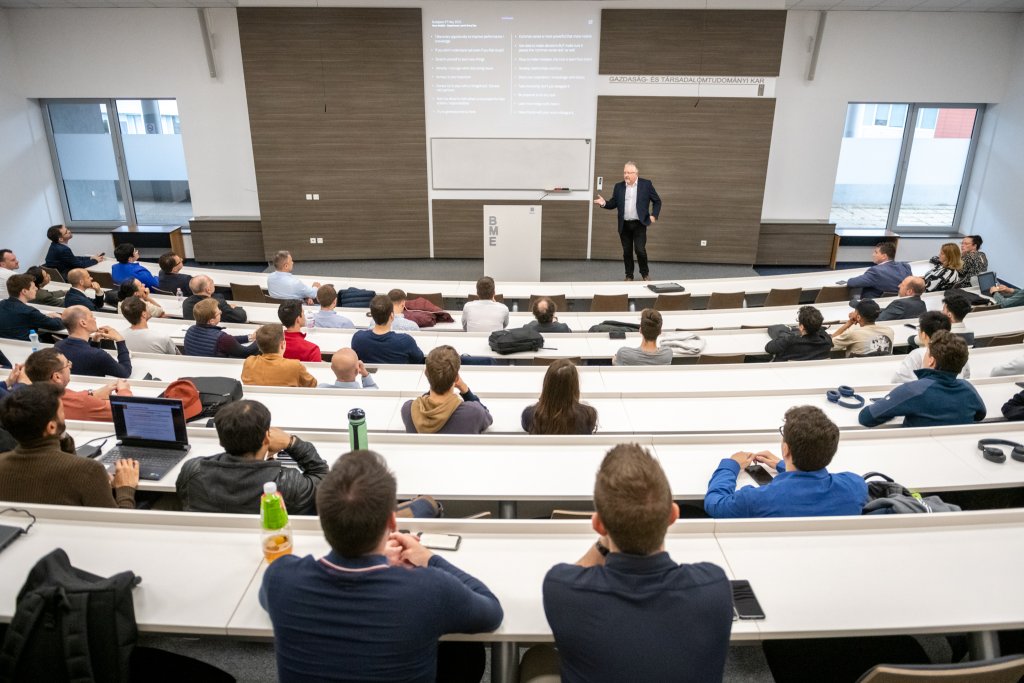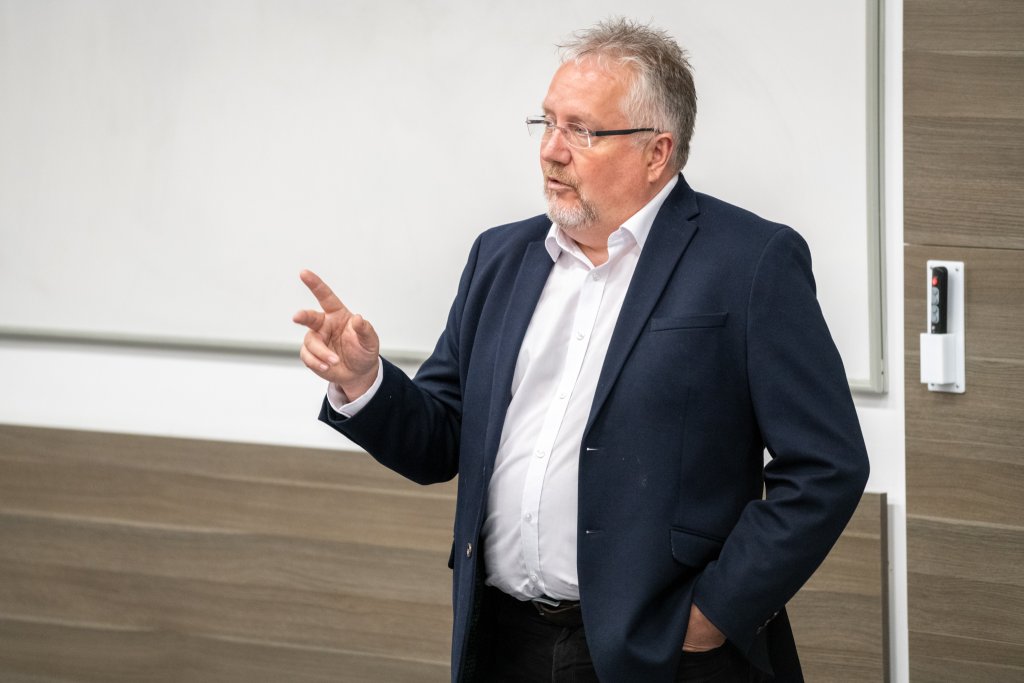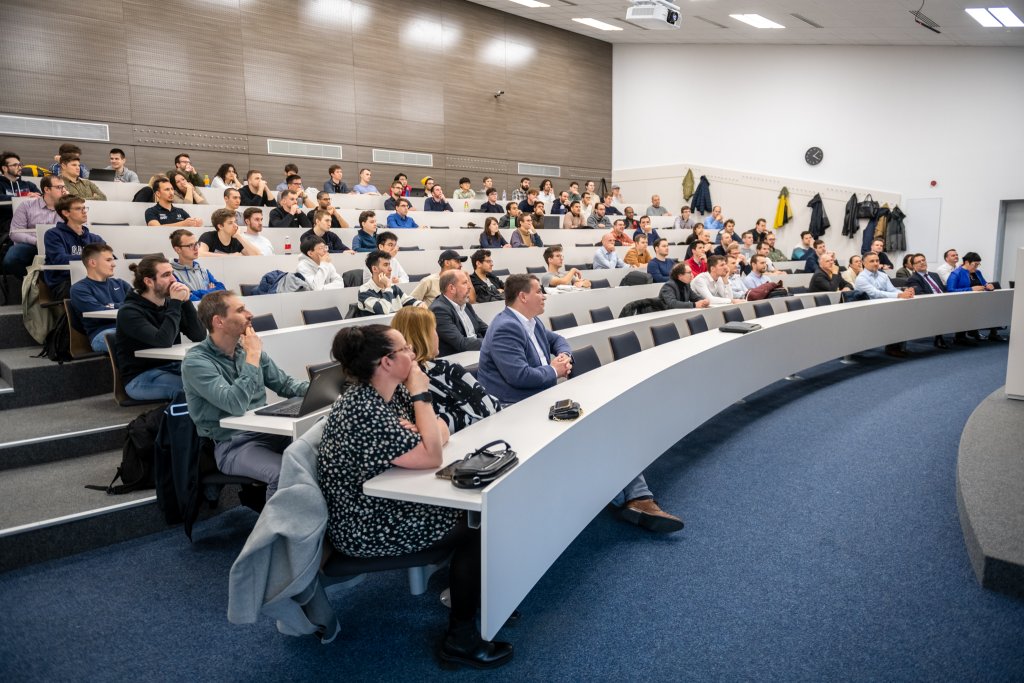News feed
JLR and BME are shaping the future of the automotive industry
2025. 05. 21.
The main event of the Bme&Jlr techDays program series was the presentation of David Nesbitt the global digital CEO of Jaguar Land Rover.
"Never blame anyone for trying something that didn't work" - it was clear from this sentence at the beginning of David Nesbitt's talk that the Global Director of Digital Platform at Jaguar Land Rover was not just going to talk about technological curiosities in BME's Q building.
The presentation entitled Software Defined Vehicle and Future Technologies was one of the highlights of the BME x JLR TechDays. However, the title of the presentation was refined by the speaker himself, saying that it would be more accurate to use the term "software-enabled vehicle". After all, the aim is not for software to dictate what the car can do, but to enable the rapid introduction of new types of services.

Also, one of the key ideas of his presentation was that software does not define the user experience, but provides the framework for creating it. This is why JLR's global digital platform was designed so that it can enable a complete rethink of the customer experience. David Nesbitt believes the car will be a key component of the personalised mobility ecosystem: helping passengers organise their journey, from timing their departure to the airport to parking or even to the personalised use of another vehicle of the brand abroad.
However, as mentioned above, ideas that can be applied to a development process in almost any industry were also discussed. David Nesbitt argued that the most valuable attributes of employees in an innovative company are curiosity, inquisitiveness and a willingness to learn continuously. And this does not necessarily mean just revolutionary ideas, but also, for example, an understanding that what works well in a given set of circumstances may not be successful in a new system.

Indeed, it also goes back to this attitude that JLR naturally seeks to engage with universities wherever it is present. He said that the company is not ashamed to admit that it needs the knowledge of others to develop. "Collaboration is a great value as we can always learn something from our partners, especially when it comes to technology," he said.
More than 200 development engineers from Budapest work at JLR, many of them with ties to the BME, including their local manager having graduated here. But the company has big plans for further joint research in areas such as cybersecurity, cloud platforms, artificial intelligence and self-driving technologies. David Nesbitt noted that when he visited the laboratories of the Faculty of Transport Engineering and Vehicle Engineering, he saw solutions that could be incorporated into JLR products.

The cooperation between the company and BME has also developed in recent years, with the parties signing a strategic cooperation agreement last year. During the TechDays, a technical meeting was also held to discuss further opportunities. More joint projects, student and research collaboration is expected in the future, to further strengthen the link between Hungarian engineering education and the cutting-edge technologies of the European automotive industry.
The speaker advised students to plan their careers consciously, based on the type of engineering job they think they are suited for, and to carefully consider the quality of company culture when choosing a job. He added that a company that really cares about the people who work there not only does good to them, but also behaves rationally, because a supportive environment will eventually be reflected in results.
Rector's Office, Communications Directorate
